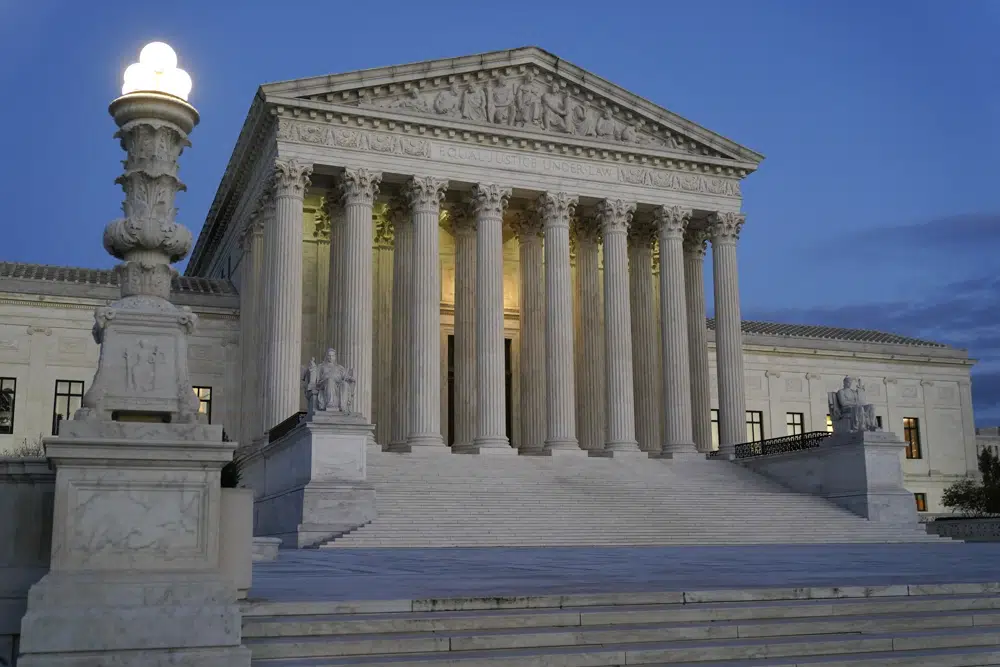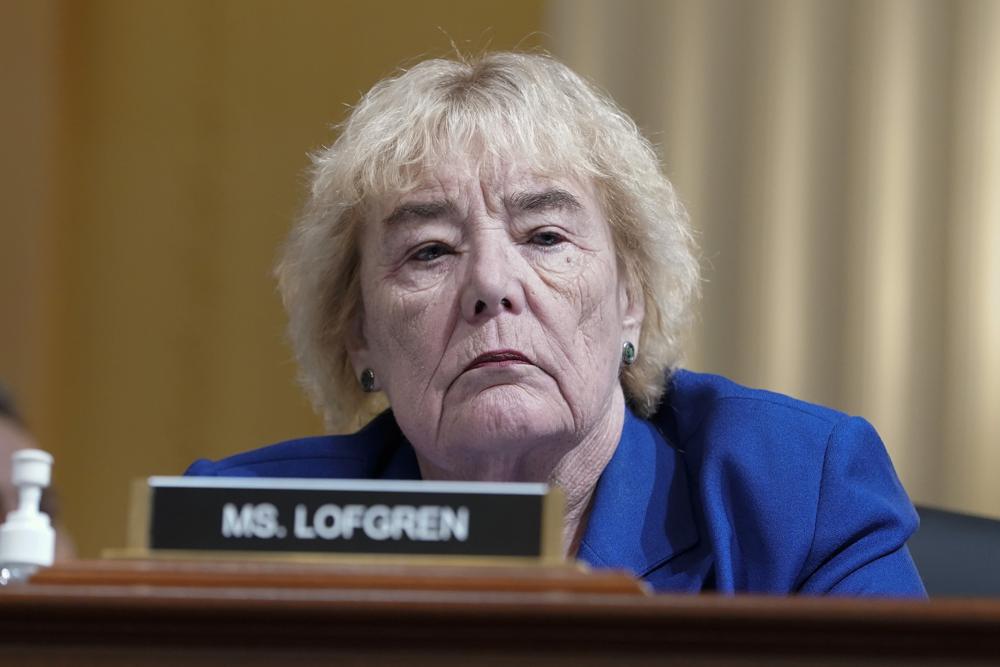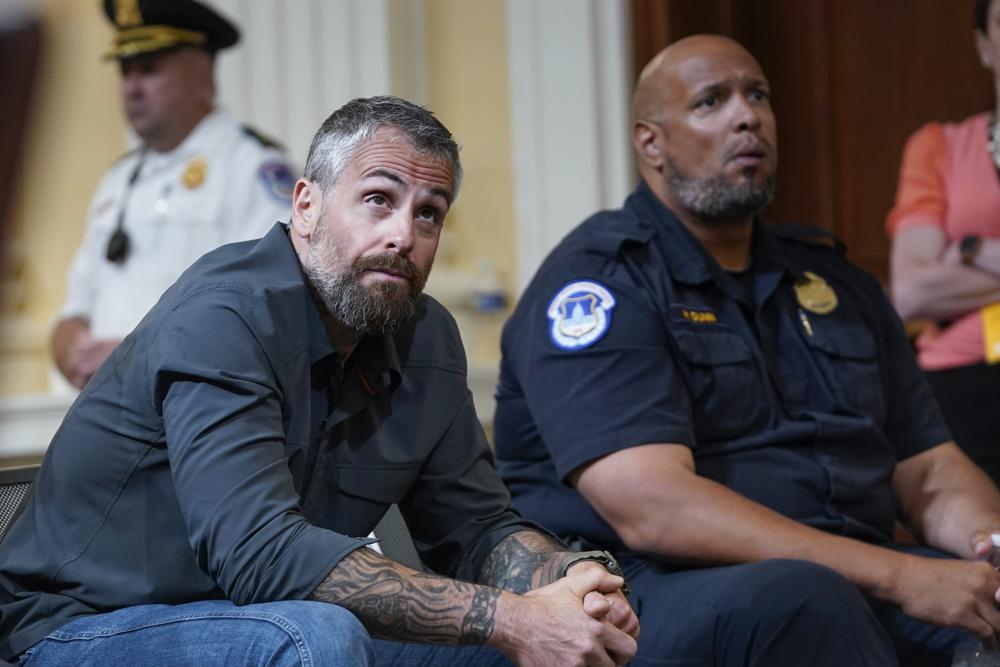Supreme Court weighs ‘most important case’ on democracy

The Supreme Court is about to confront a new elections case, a Republican-led challenge asking the justices for a novel ruling that could significantly increase the power of state lawmakers over elections for Congress and the presidency. The court is set to hear arguments Wednesday in a case from North Carolina, where Republican efforts to draw congressional districts heavily in their favor were blocked by a Democratic majority on the state Supreme Court because the GOP map violated the state constitution. A court-drawn map produced seven seats for each party in last month’s midterm elections in highly competitive North Carolina. The question for the justices is whether the U.S. Constitution’s provision giving state legislatures the power to make the rules about the “times, places and manner” of congressional elections cuts state courts out of the process. “This is the single most important case on American democracy — and for American democracy — in the nation’s history,” said former federal judge Michael Luttig, a prominent conservative who has joined the legal team defending the North Carolina court decision. The Republican leaders of North Carolina’s legislature told the Supreme Court that the Constitution’s “carefully drawn lines place the regulation of federal elections in the hands of state legislatures, Congress, and no one else.” Three conservative justices already have voiced some support for the idea that the state court had improperly taken powers given by the Constitution when it comes to federal elections. A fourth has written approvingly about limiting the power of state courts in this area. But the Supreme Court has never invoked what is known as the independent state legislature theory. It was, though, mentioned in a separate opinion by three conservatives in the Bush v. Gore case that settled the 2000 presidential election. If the court were to recognize it now, opponents of the concept argue, the effects could be much broader than just redistricting. The most robust ruling for North Carolina Republicans could undermine more than 170 state constitutional provisions, over 650 state laws delegating authority to make election policies to state and local officials, and thousands of regulations down to the location of polling places, according to the Brennan Center for Justice at the New York University School of Law. Luttig, who advised former Vice President Mike Pence that he had no authority to reject electoral votes following the 2020 election, is among several prominent conservatives and Republicans who have lined up against the broad assertion that legislatures can’t be challenged in state courts when they make decisions about federal elections, including congressional redistricting. That group includes former California Gov. Arnold Schwarzenegger, law professor Steven Calabresi, a founder of the conservative Federalist Society, and Benjamin Ginsberg, a longtime lawyer for Republican candidates and the party. “Unfortunately, because of ongoing and widespread efforts to sow distrust and spread disinformation, confidence in our elections is at a low ebb,” Ginsberg wrote in a Supreme Court filing. “The version of the independent state legislature theory advanced by Petitioners, in this case, threatens to make a bad situation much worse, exacerbating the current moment of political polarization and further undermining confidence in our elections.” The arguments are taking place a day after the final contest of the 2022 midterms, the Georgia Senate runoff between Democratic Sen. Raphael Warnock and Republican Herschel Walker. In that contest, state courts ruled in favor of Democrats to allow for voting on the Saturday before the election, over the objections of Republicans. Jason Snead, of the conservative Honest Elections Project, said the case is an opportunity for the high court to rein in out-of-control state courts which are being pushed by Democratic attorneys to effectively create new rules governing voting, including the Georgia example. “We’ve seen a fairly pervasive attempt to use courts to rewrite election laws if those laws don’t suit partisan agendas,” Snead said in a call with reporters. “That’s not something we want to see when it flies in the face of the Constitution.” He is among proponents of the high court’s intervention who argue the case doesn’t represent “a threat to democracy.” The justices can instead write a narrow opinion that places limits on state courts without upsetting the choices New York and other states have made to restrict partisan redistricting, a group of New York voters wrote in a court filing. The New Yorkers implicitly recognize that if the court gives more power to state legislatures over drawing congressional lines, Republicans may not necessarily benefit. During the last redistricting cycle, states that used independent redistricting commissions rather than legislatures were largely Democratic-dominated ones. Commissions drew 95 House seats in states with Democratic legislatures and governors, as opposed to only 12 in states with GOP control. A ruling that grants legislatures ultimate power over redistricting could eradicate those commissions and let Democrats redraw a major chunk of the House map. “The bottom line is the impact of this fringe theory would be terrible,” said former Attorney General Eric Holder, chairman of the National Democratic Redistricting Committee. “It could unleash a wave of gerrymandering from both parties.” Even less dramatic changes may not necessarily tilt the GOP’s way on a national redistricting map that was essentially fought to a draw, and where state court rulings cost Democrats about as many House seats as Republicans. The Supreme Court refused to step into the North Carolina case in March, allowing the court-drawn districts to be used this year. Justices Samuel Alito, Neil Gorsuch, and Clarence Thomas dissented. Writing for the three, Alito said, “there must be some limit on the authority of state courts to countermand actions taken by state legislatures when they are prescribing rules for the conduct of federal elections. I think it is likely that the applicants would succeed in showing that the North Carolina Supreme Court exceeded those limits.” Justice Brett Kavanaugh has separately written about the need for federal courts to police the actions of state courts when it comes to federal elections. Chief Justice John Roberts’ record on this question gives both sides some hope. In 2015,
House to vote on election law overhaul in response to January 6

The House pushed ahead Wednesday with legislation that would revamp the rules for certifying the results of a presidential election as lawmakers accelerate their response to the January 6, 2021, insurrection and Donald Trump’s failed attempt to remain in power. The legislation would overhaul an arcane 1800s-era statute known as the Electoral Count Act that governs, along with the U.S. Constitution, how states and Congress certify electors and declare presidential election winners. The House planned a vote on the bill after afternoon debate. While that process has long been routine and ceremonial, Trump and a group of his aides and lawyers tried to exploit loopholes in the law in an attempt to overturn his defeat in the 2020 election. The bill would set new parameters around the January 6 joint session of Congress that happens every four years after a presidential election. The day turned violent last year after hundreds of Trump’s supporters interrupted the proceedings, broke into the building, and threatened the lives of then-Vice President Mike Pence and members of Congress. The rioters echoed Trump’s false claims of widespread fraud and wanted Pence to block Democrat Joe Biden’s victory as he presided over the joint session. The legislation intends to ensure that future Jan. 6 sessions are “as the constitution envisioned, a ministerial day,” said Wyoming Rep. Liz Cheney, a Republican who co-sponsored the legislation with House Administration Committee Chairwoman Zoe Lofgren, D-Calif. Both Cheney and Lofgren are also members of the House committee investigating the January 6 attack. Maryland Rep. Jamie Raskin, another member of the January 6 panel, said during the start of the House debate that the bill would modernize the elections law “to make sure that the will of the people is vindicated at every level.” The bill, which is similar to legislation moving through the Senate, would clarify in the law that the vice president’s role presiding over the count is only ceremonial and also sets out that each state can only send one certified set of electors. Trump’s allies had unsuccessfully tried to put together alternate slates of illegitimate pro-Trump electors in swing states where Biden won. The legislation would increase the threshold for individual lawmakers’ objections to any state’s electoral votes, requiring a third of the House and a third of the Senate to object to trigger votes on the results in both chambers. Currently, only one lawmaker in the House and one lawmaker in the Senate have to object. The House bill would set out very narrow grounds for those objections, an attempt to thwart baseless or politically motivated challenges. The legislation also would require courts to get involved if state or local officials want to delay a presidential vote or refuse to certify the results. The House vote comes as the Senate is moving on a similar track with enough Republican support to virtually ensure passage before the end of the year. After months of talks, House Democrats introduced the legislation on Monday and are holding a quick vote two days later in order to send the bill across the Capitol and start to resolve differences. A bipartisan group of senators introduced legislation this summer, and a Senate committee is expected to vote on it next week. While the House bill is more expansive than the Senate version, the two bills cover similar ground, and members in both chambers are optimistic that they can work out the differences. While few House Republicans are expected to vote for the legislation — most are still allied with Trump — supporters are encouraged by the bipartisan effort in the Senate. “Both sides have an incentive to want a set of clear rules, and this is an antiquated law that no one understands,” said Benjamin Ginsburg, a longtime GOP lawyer who consulted with lawmakers as they wrote the bill. “All parties benefit from clarity.” House GOP leaders disagree and are encouraging their members to vote against the legislation. They say the involvement of courts could drag out elections and that the bill would take rights away from states. The bill is an “attempt to federalize our elections,” Rep. Guy Reschenthaler, R-Pa., said on the House floor. He argued that voters are more focused on the economy and other issues than on elections law. “In my area of Pennsylvania, nobody is talking about this,” Reschenthaler said. Illinois Rep. Rodney Davis, Lofgren’s GOP counterpart on the House Administration Committee, said Tuesday that Democrats are “desperately trying to talk about their favorite topic, and that is former president Donald Trump.” Democrats said the bill was not only a response to Trump but also a way to prevent objections and mischief from all candidates in the future. “If you think that this legislation is an attack on President Trump, you simply haven’t read the legislation because there’s nothing in there attacking President Trump,” Raskin said. “This is about reforming the Electoral Count Act, so it works for the American people.” Republished with the permission of The Associated Press.
January 6 panel: Donald Trump ‘detached from reality’ in defeat

Donald Trump’s closest campaign advisers, top government officials, and even his family were dismantling his false claims of 2020 election fraud ahead of January 6, but the defeated president seemed “detached from reality” and kept clinging to outlandish theories to stay in power, the committee investigating the Capitol attack was told Monday. With gripping testimony, the panel is laying out in step-by-step fashion how Trump ignored his own campaign team’s data as one state after another flipped to Joe Biden and instead latched on to conspiracy theories, court cases, and his own declarations of victory rather than having to admit defeat. Trump’s “big lie” of election fraud escalated and transformed into marching orders that summoned supporters to Washington and then sent them to the Capitol on January 6 to block Biden’s victory. “He’s become detached from reality if he really believes this stuff,” former Attorney General William Barr testified in his interview with the committee. Barr called the voting fraud claims “bull——,” “bogus,” and “idiotic,” and resigned in the aftermath. “I didn’t want to be a part of it.” The House 1/6 committee spent the morning hearing delving into Trump’s claims of election fraud and the countless ways those around him tried to convince the defeated Republican president they were not true and that he had simply lost the election. The witnesses Monday, mostly Republicans and many testifying in prerecorded videos, described in blunt terms and sometimes exasperated detail how Trump refused to take the advice of those closest to him, including his family members. As the people around him splintered into a “team normal” headed by former campaign manager Bill Stepien and others led by Trump confidant Rudy Giuliani, the president chose his side. On election night, Stepien said, Trump was “growing increasingly unhappy” and refusing to accept the grim outlook for his presidency. Son-in-law Jared Kushner tried to steer Trump away from Giuliani and his far-flung theories of voter fraud. The president would have none of it. The back-and-forth intensified in the run-up to January 6. Former Justice Department official Richard Donoghue recalled breaking down one claim after another — from a truckload of ballots in Pennsylvania to a missing suitcase of ballots in Georgia —- and telling Trump “much of the info you’re getting is false.” Still, he pressed on with his false claims even after dozens of court cases collapsed. On Monday, an unrepentant Trump blasted the hearings in his familiar language as “ridiculous and treasonous” and repeated his claims. The former president, mulling another run for the White House, defended the Capitol attack as merely Americans seeking “to hold their elected officials accountable.” Nine people died in the riot and its aftermath, including a Trump supporter, shot and killed by Capitol police. More than 800 people have been arrested, and members of two extremist groups have been indicted on rare sedition charges over their roles in leading the charge into the Capitol. During the hearing, the panel also provided new information about how Trump’s fundraising machine collected some $250 million with his campaigns to “Stop the Steal” and others in the aftermath of the November election, mostly from small-dollar donations from Americans. One plea for cash went out 30 minutes before the January 6, 2021, insurrection. “Not only was there the big lie, there was the big ripoff,” said Rep. Zoe Lofgren, D-Calif. Chairman Rep. Bennie Thompson, D-Miss., opened Monday’s hearing saying Trump “betrayed the trust of the American people” and “tried to remain in office when people had voted him out.” As the hearings play out for the public, they are also being watched by one of the most important viewers, Attorney General Merrick Garland, who must decide whether his department can and should prosecute Trump. No sitting or former president has ever faced such an indictment. “I am watching,” Garland said Monday at a press briefing at the Justice Department, even if he may not watch all the hearings live. “And I can assure you the January 6 prosecutors are watching all of the hearings as well.” Biden was getting updates but not watching “blow by blow,” said White House press secretary Karine Jean-Pierre. Stepien was to be a key in-person witness Monday but abruptly backed out of appearing live because his wife went into labor. Stepien, who is still close to Trump, had been subpoenaed to appear. He is now a top campaign adviser to Trump-endorsed House candidate Harriet Hageman, who is challenging committee vice chair Rep. Liz Cheney in the Wyoming Republican primary. The panel marched ahead after a morning scramble and delay, with witness after witness saying Trump embraced and repeated his claims about the election, although those closest told him the theories of stolen ballots or rigged voting machines were simply not true. Stepien and senior adviser Jason Miller described how the festive mood at the White House on Election Night turned grim as Fox News announced Trump had lost the state of Arizona to Joe Biden, and aides worked to counsel Trump on what to do next. But he ignored their advice, choosing to listen instead to Giuliani, who was described as inebriated by several witnesses. Giuliani issued a general denial Monday, rejecting “all falsehoods” he said were being said about him. Stepien said, “My belief, my recommendation was to say that votes were still being counted, it’s too early to tell, too early to call the race.” But Trump “thought I was wrong. He told me so.” Barr, who had also testified in last week’s blockbuster opening hearing, said Trump was “as mad as I’d ever seen him” when the attorney general later explained that the Justice Department would not take sides in the election. Barr said when he would tell Trump “how crazy some of these allegations were, there was never; there was never an indication of interest in what the actual facts were.” For the past year, the committee has been investigating the most violent attack on the Capitol since the War of 1812, which some believe posed a grave threat to democracy. Monday’s hearing also featured live witnesses, including Chris Stirewalt, a


